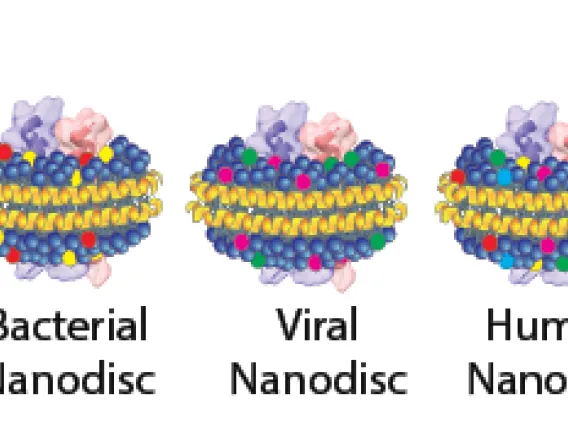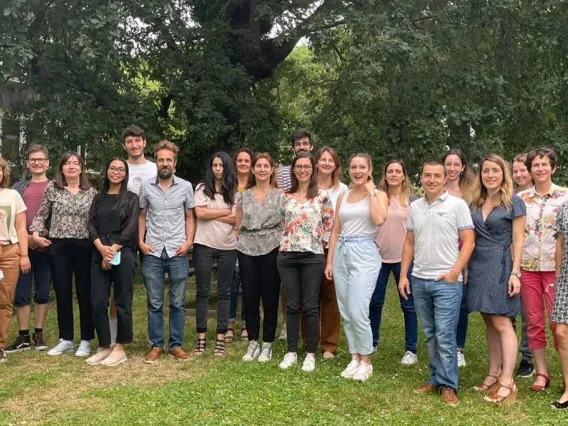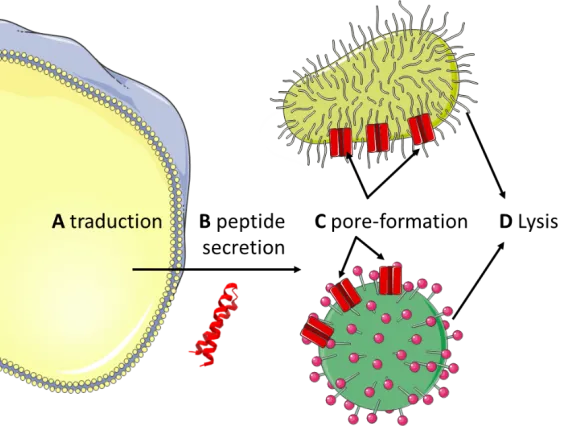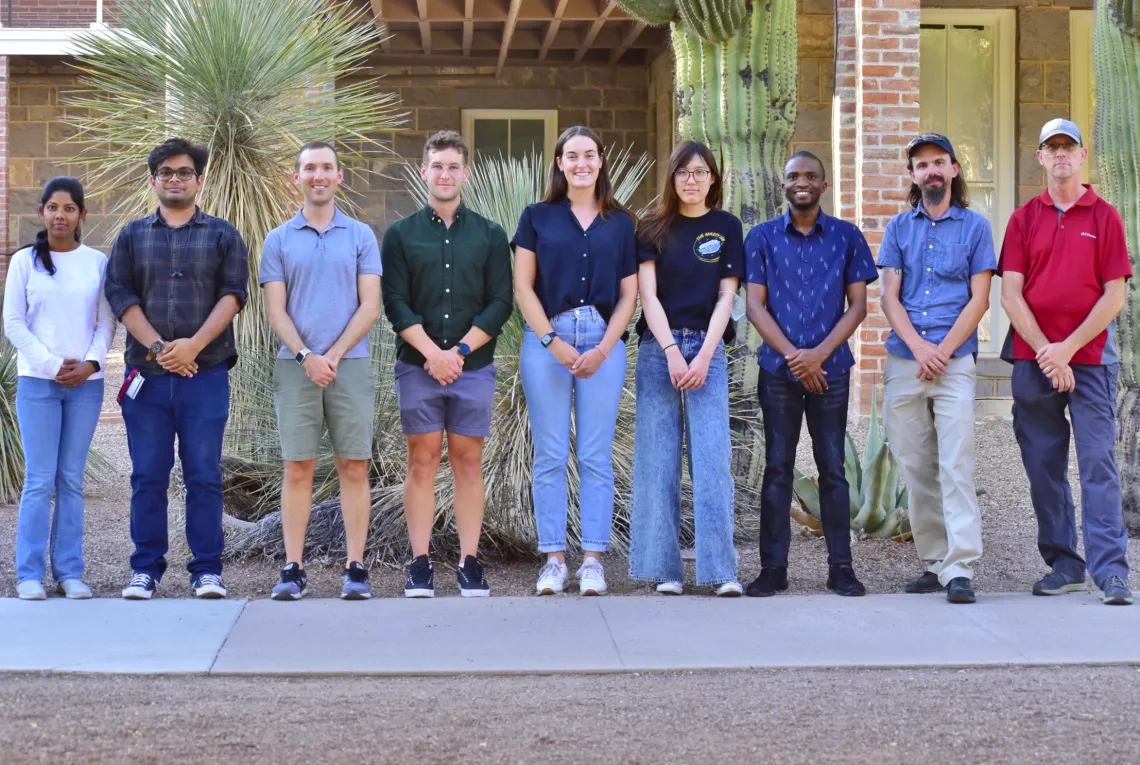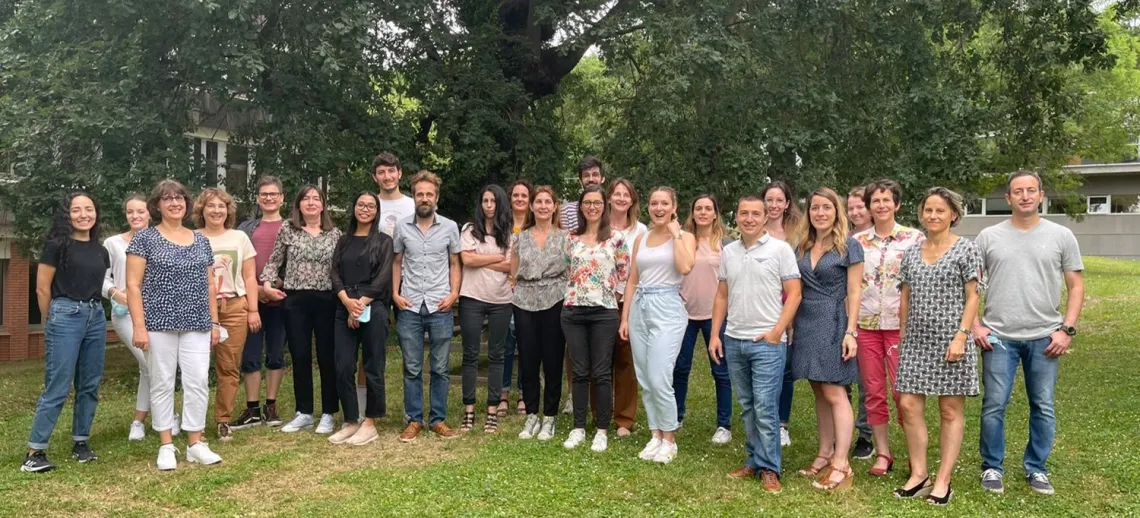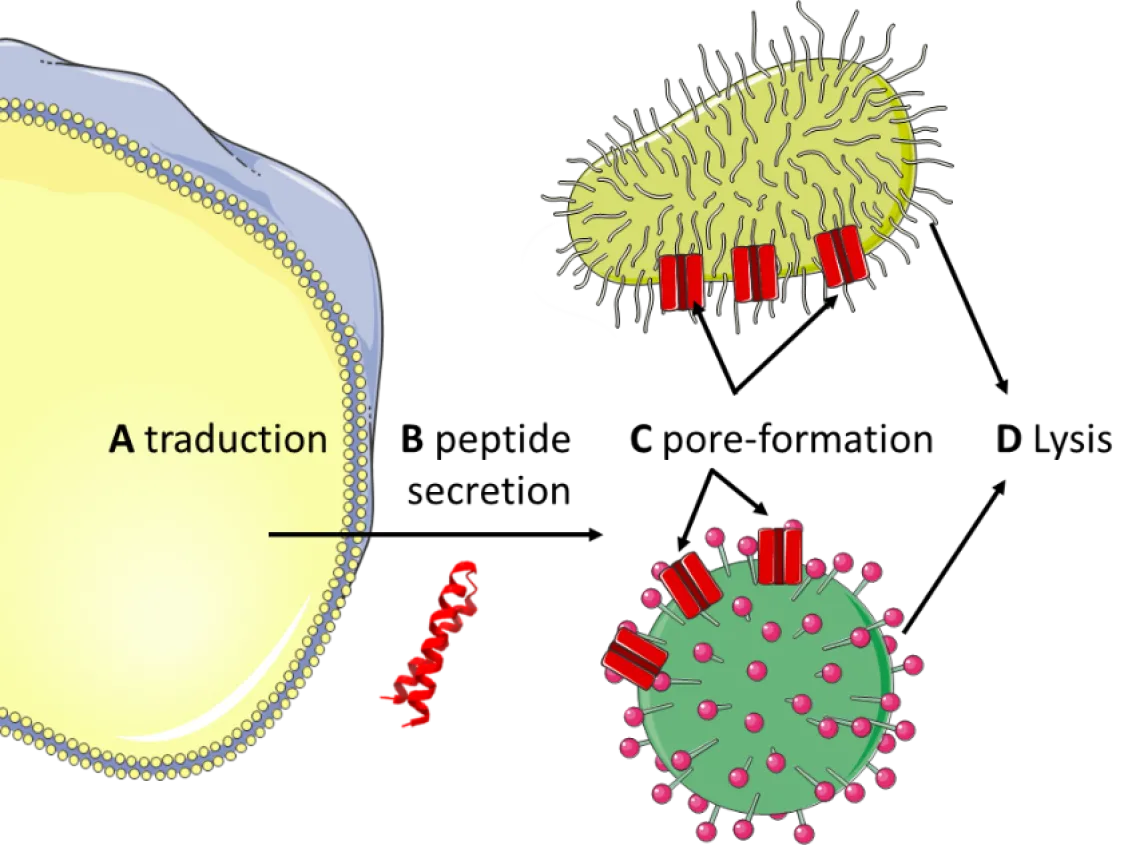Tackling Infectious Disease by Understanding Pore-Forming Peptides TIDyUP-FP
PIs:
- Julien Marcoux, CNRS Researcher, IPBS, UMR5089, CNRS-University Toulouse III
- Etienne Meunier, CNRS Researcher, IPBS, UMR5089, CNRS-University Toulouse III
- Michael Marty, Chemistry and Biochemistry, UArizona
The global COVID-19 pandemic has revealed the enormous societal danger of viral diseases, and the emergence of antibiotic resistant “superbugs” could overturn a century of progress in fighting bacterial pathogens. To combat these ongoing threats, we need new strategies for developing drugs and new insights into microbial biology. This collaborative research consortium seeks to address these grand challenges by developing new technologies to study interactions in viral and bacterial membranes, which will allow us to address critical roadblocks in understanding pathogen biology and provide new strategies for targeting resistant and emerging pathogens.
Pore-forming peptides are highly effective molecular weapons used by a wide range of organisms to target the first line of pathogen defense: their lipid membrane. Every cell (including bacteria, parasites, and fungi) and many viruses are surrounded by a lipid bilayer membrane that encapsulates them in a protective shell. Because the integrity of the membrane is essential for cell survival, a wide range of organisms have evolved natural defenses against pathogens that seek to disrupt bacterial or viral membranes by opening small holes in the lipid bilayer. These antimicrobial peptides (AMPs) and antiviral peptides (AVPs) play an important role in the innate immune system and may be more effective at targeting antibiotic resistant bacteria or vaccine-resistant variant viruses because they broadly disrupt bacterial/viral membranes rather than targeting specific proteins or pathways. However, their mechanisms of action are poorly understood and effective technologies for studying formation and interactions of AMPs/AVPs within bacterial/viral membranes are lacking.
This project aims at better understanding specificity of these peptides and the molecular and biophysical mechanisms responsible for the formation of pores. It will explore human peptides with antimicrobial and antiviral properties, as well as viral peptides that target human cells which will enable the development of efficient drugs to target resistant bacteria and viruses. This consortium gathers experts in lipid nanotechnology and native mass spectrometry (Michael Marty, Tucson) and hydrogen-deuterium exchange mass spectrometry (Julien Marcoux, Toulouse) as well as inflammasome and infection (Etienne Meunier, Toulouse) and combines unique mass spectrometry (MS) tools from Dr. Michael Marty’s Lab at the University of Arizona (UA) and Dr. Julien Marcoux’s Lab at the Institute of Pharmacology and Structural Biology (IPBS-CNRS) of Toulouse.
With a primary focus on graduate student training the expertise of the two teams is uniquely complementary in combining different biological systems (AMPs from Tucson and AVPs from Toulouse) and different analysis methods: nMS and NDs from UA and MP/HDX-MS and virulence assays from the CNRS. By merging these cutting-edge analysis methods with important biomedical questions, the team is in a unique position to make significant contributions to advancing knowledge and improving human health.


